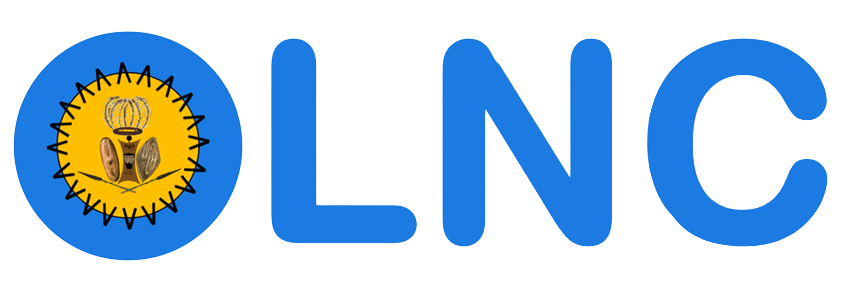A Champion of the Luo Community
For the Luo Nation, Raila Amolo Odinga was more than a political leader, he was our champion, our voice, and our pride. He carried the aspirations of our people on his shoulders and never forgot where he came from. In every battle he fought, Raila ensured that the concerns of the Luo community were heard, respected, and never ignored.
Beyond his long years of detention, his fearless pro-democracy activism, and his fight for the inclusion of Joluo in the national political arena, Raila also stood firm for the tangible rights and welfare of his people.
The roots of this economic vision stretch back to his father, Jaramogi, who in the early 1960s, as a member of the Legislative Council and later Kenya’s first Vice-President, lobbied for government-backed sugar schemes to transform the lower Nyanza basin into fertile farmland. His efforts gave rise to the Muhoroni and Chemelil sugar companies, which became the backbone of the Luo sugar belt.
Decades later, Raila inherited that mission. With his characteristic zeal, he became one of the most vocal defenders of the sugar industry, demanding the revival of collapsing mills and fighting for debt relief for Nyanza’s farmers. As Prime Minister (2008–2013), he pressed for transparency and fair prices for out-growers, often reminding the nation:
“The sugar industry is the heart of Nyanza’s economy; if it dies, our people’s livelihoods collapse.”
He went further to uplift Joluos living standards through acts of generosity and vision. Raila donated land in Kisumu, including five acres at Kirembe in May 2025 for affordable housing, and pushed for essential local initiatives such as the Otonglo-Riat water project.
Along the shores of Lake Victoria, he raised his voice to protect the rights of Luo fishermen, urging the government to resolve cross-border conflicts and end the harassment of Kenyan fishermen. He saw this not only as an economic matter but as a question of justice and security for a people whose lives are bound to the lake.
Raila also consistently challenged the political marginalisation of the Luo community. He spoke out against exclusion from state appointments, reminding the nation that no community should be punished for its political choices. For him, equality in public service was a matter of principle, a cornerstone of the democratic ideals he had long suffered to defend.
Throughout his career, he championed development in Nyanza, roads, hospitals, and schools, holding successive governments accountable for decades of neglect. He understood that regional development was not a favour to the Luo people but a constitutional and moral right.
When a dispute arose over the ownership of Ofafa Memorial Hall, a historic communal landmark in Kisumu, Raila publicly asserted his custodianship of the title deed and declared the hall a sacred Luo heritage site.
Yet, perhaps the greatest gift Raila Odinga gave to the Luo people was devolution. Raila ensured that power, resources, and decision-making were brought closer to the people. Under devolution, Luo Nyanza could, for the first time since independence, plan its own priorities, build its own hospitals, manage its own development budgets, and elect its own governors accountable to the people of the region. It placed the destiny of Joluo firmly in our own hands. It is now upon us to elect visionary and credible leaders who will transform Raila’s dream of self-determination into a living reality.
Raila understood our history, our struggles, and our dreams. He embraced Luo culture wholeheartedly, speaking Dholuo with pride, teaching traditional songs, sharing the epic stories of migration from Bahr El Ghazal to Padhola to Ramogi, and donning full Luo regalia at state events. In his triumphs, we saw our own possibilities; in his setbacks, we felt our own pain; and in his resilience, we rediscovered our strength as a people.
He was, and will forever remain, a champion of the Luo nation, a son of Ramogi who carried the hopes of his ancestors and the faith of his people into the heart of Kenya’s history.
The Final Journey
As Raila collapsed during a morning walk in Kerala, India, on that fateful Wednesday morning, thousands of miles away from the land he loved, Kenya stood still. The news reverberated across the nation like thunder across Lake Victoria. From Kisumu to Nairobi, from Bondo to Mombasa, Kenyans wept for a leader who had given everything for his country.
President William Ruto, once a political rival, declared seven days of national mourning and honored Raila as “a giant of democracy” and “a once-in-a-generation leader.” Leaders across Africa and the world paid tribute to a statesman whose influence transcended borders.
He rests now with our ancestors, his spirit forever woven into the story of our great Luo Nation.
To the Luo Nation
Dear brothers and sisters of the Luo Nation,
We have lost our greatest son. The pain we feel is immeasurable. He carried our name, our blood, and our hopes.
Let us honor his memory not with despair, but with determination. Raila would want us to continue the fight for justice, equity, and the dignity of every Jaluo. Let us preserve our culture, educate our children, empower our youth, and build the Pinyluo he envisioned – a Nation where no one is left behind.
He has gone to rest now with our ancestors, his spirit forever woven into the story of our great Luo Nation.
Baba, Nind gi kwe, Wuod Nyalego.
The Luo National Congress stands in solidarity with the Odinga family—Mama Ida Odinga, the children, grandchildren, and all relatives during this difficult time. We extend our deepest condolences and commit to honoring Raila’s legacy through our continued work for the advancement of the Luo people and all Kenyans.
Published by the Luo National Congress
October 17, 2025

